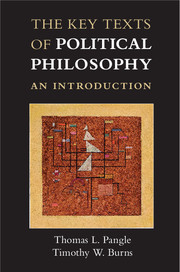5 - St. Thomas Aquinas’s Treatise on Law
Published online by Cambridge University Press: 05 October 2014
Summary
The great achievement of St. Thomas Aquinas (1225–1274) is to have brought together in a grand synthesis the teachings of the pagan rationalist philosophers, above all Aristotle, and the revelation taught in the Holy Scriptures. Thomas contends that reason or science, wisely understood, leads up to or points toward the truth of the Christian faith and, conversely, that faith-based truth, if properly understood, presupposes while completing rational philosophy and science. Thomas insists that the truly honest scientific mind – because it is keenly aware of its own limits – is the mind open to and welcoming of Christ’s inspiration. By the same token, the thoughtful Christian welcomes, as a gift of God, Aristotle and his exemplary demonstration of all that the reasoning of man can and should discover and clarify on its own, as the basis for wisely accepting and interpreting revelation.
The Broad Historical Context
At the time Thomas began to write and teach, it was far from clear that this sort of outlook would prevail in Christendom. In the twelfth and thirteenth centuries, the works of Aristotle were reintroduced into the West, from the Muslim world. For five hundred years previously in Christian Europe, Greek thought, and especially Greek political philosophy, were poorly known. Meanwhile, in the Islamic world, the Greek texts became well known and had an enormous impact on thinkers in Judaism and Islam. The most fraught influence was through Platonic political philosophy. The major political philosophers – most notably al-Farabi and Avicenna and Averroes in Islam, and Maimonides in Jewry – contended that the Scriptures, as the revelation of an all-wise deity, must be understood to be written wisely: much like Plato wrote his books but with an even more “wily graciousness” (in the famous formula of Maimonides). God has deployed a subtle strategy of responsibly civic, educative rhetoric that teaches the unequal levels of humanity differently, through conveying many levels of meaning, the most serious and complex of which God has deliberately hidden from most readers. The surface message of the Bible or Koran, these Islamic and Jewish Platonists suggested, consists of edifying myths, or noble lies, which are good for and needed by the less thoughtful majority.
- Type
- Chapter
- Information
- The Key Texts of Political PhilosophyAn Introduction, pp. 153 - 170Publisher: Cambridge University PressPrint publication year: 2014



